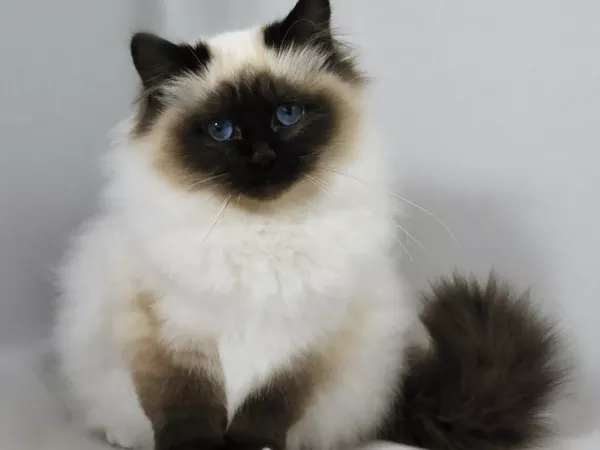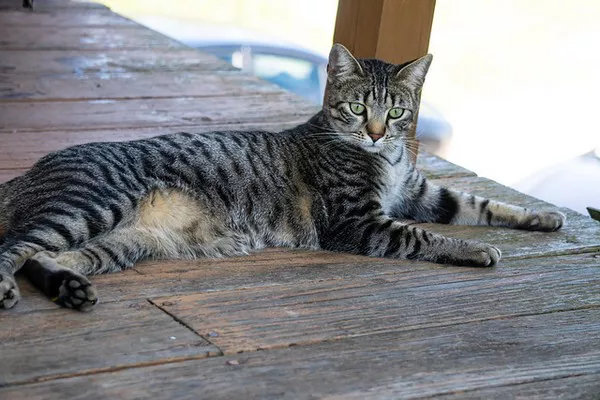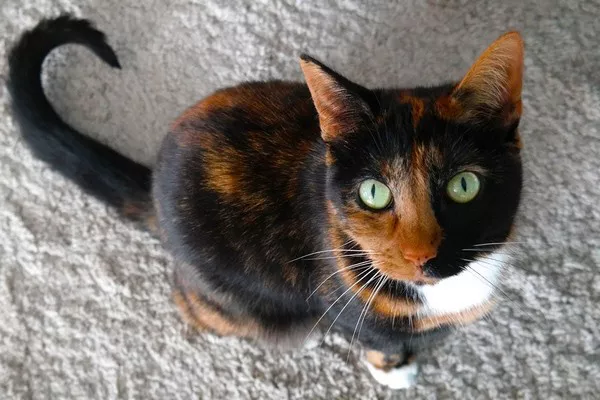In recent times, a growing number of pet owners have contemplated extending their dietary preferences to their beloved feline companions, opting for a meat-free regimen. However, the conventional wisdom among veterinarians has persistently warned against this practice. In a twist, a recently published study in the open-access journal PLOS ONE challenges this established belief. The researchers contend that cats on vegan diets may, in fact, exhibit superior health outcomes when compared to their meat-eating counterparts. While this assertion has sparked intrigue, a closer examination of the study’s findings reveals a more nuanced and inconclusive picture.
The Study’s Scope
The study in question involved a survey of 1,369 cat owners who provided insights into their cats’ dietary habits—ranging from vegan to meat-based diets. The majority of respondents were female (91%) representing diverse age groups, primarily residing in the UK, Europe, North America, or Oceania. Interestingly, around 65% of these owners had also adopted diets aimed at reducing meat consumption, such as veganism, vegetarianism, or pescatarianism. A smaller subset (9%) of these owners, regardless of their personal dietary choices, opted to feed their cats a vegan diet.
Owners were questioned about their cats’ health, including specific health conditions, medication usage, veterinary visits, and their perceptions of their cats’ well-being.
Study Findings
Upon examination of the study’s findings, no concrete evidence emerged to suggest that vegan diets were detrimental to feline health. In fact, the authors posited that vegan diets might confer health benefits upon cats. They scrutinized seven indicators of illness, noting nonsignificant reductions across the board in cats on a vegan diet. These reductions encompassed fewer veterinary visits, reduced medication usage, and a decreased perception among owners that their cats were in poor health.
Nonetheless, it is vital to underscore that nonsignificance in this context does not definitively rule out an effect. It merely indicates a lack of strong statistical evidence supporting a significant difference between the diet groups. Notably, 15 diseases appeared to be more common among cats fed a meat-based diet, while only seven diseases were more prevalent among cats on vegan diets. Examples of less common diseases among the latter group included dental disease, skin issues, and hormonal disorders. Again, these distinctions did not achieve statistical significance. However, a statistically significant difference did emerge: cats on vegan diets exhibited a slightly elevated likelihood of kidney disease.
While this study boasts a relatively substantial sample size compared to its predecessors, it’s imperative to recognize that only 127 cats adhered to a vegan diet. Many of these cats also had outdoor access, potentially supplementing their diet with meat from hunting. Moreover, some owners provided their cats with nutrient supplements and treats, introducing variables that may not be solely attributable to diet.
The study’s duration remains unclear, leaving questions about the long-term effects of vegan diets unaddressed. It is well-documented that deficiency diseases can take considerable time to manifest.
Furthermore, the study’s survey-based nature introduces inherent limitations, as owners are typically not medically trained, and their perceptions can be subjective and influenced by preconceived beliefs.
It’s noteworthy that participants who reduced or eliminated meat from their diets were overrepresented in the study, potentially introducing a bias, as these individuals may already harbor positive predispositions towards vegan diets.
Lastly, the study’s funding source, ProVeg International, an organization advocating for plant-based products, raises questions about potential bias in reporting results, although this may not necessarily affect data validity.
Conclusion
In summary, while this study contributes to the emerging body of evidence challenging the conventional wisdom surrounding vegan diets for cats, it is far from conclusive. More extensive research, including clinical trials involving a larger feline population with direct health measurements through veterinary examinations and lab tests, is warranted.
The critical question of how to safely formulate a vegan cat diet remains unresolved. Ensuring that essential nutrients, such as taurine, are adequately provided to meet feline nutritional needs is paramount. This complex task would likely require guidance from animal health professionals or an in-depth understanding of feline nutrition.
For most pet owners, the prudent approach may be to exercise caution and seek advice from a veterinarian before transitioning their cats to a vegan diet. Additionally, opting for commercial vegan pet diets and consulting with a veterinarian regarding proper nutrient supplementation could provide a safer alternative.
As the debate rages on, it is clear that further research and comprehensive assessments are essential to determine whether vegan diets can truly offer a healthier and safer dietary option for our feline companions.


























